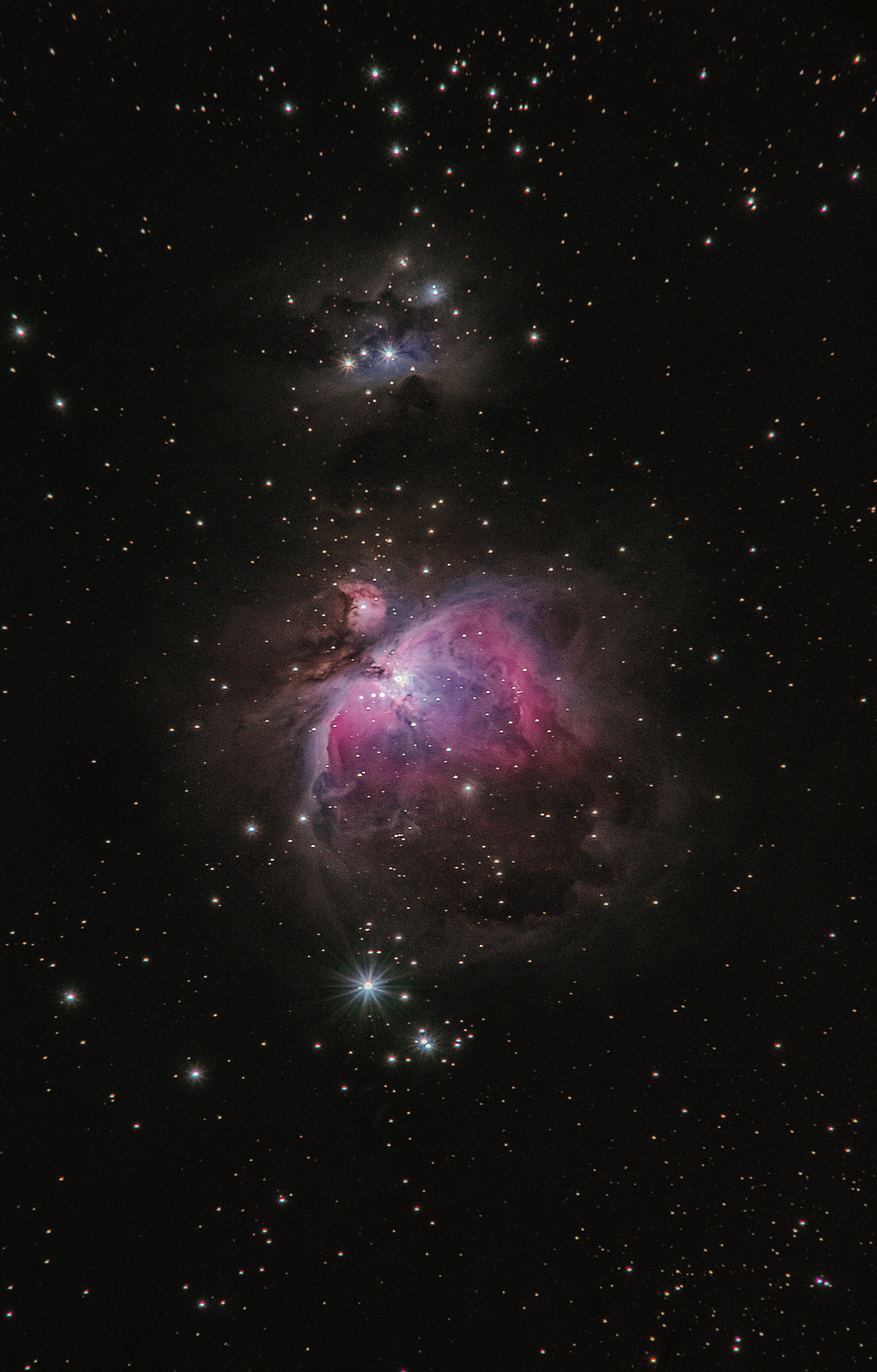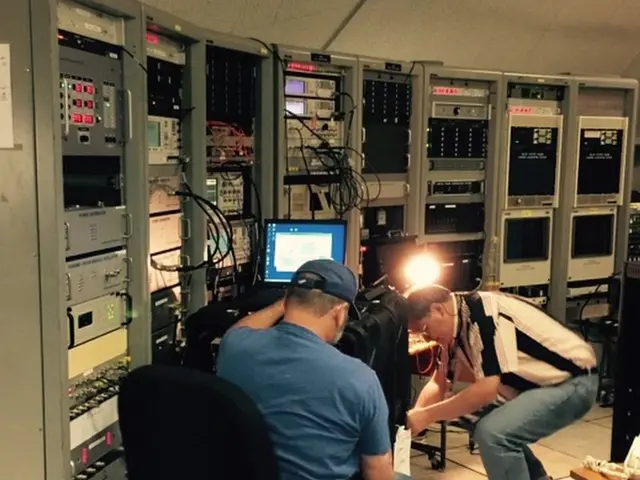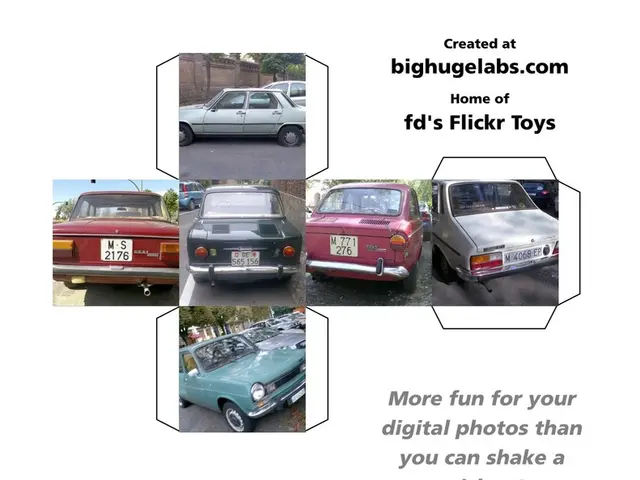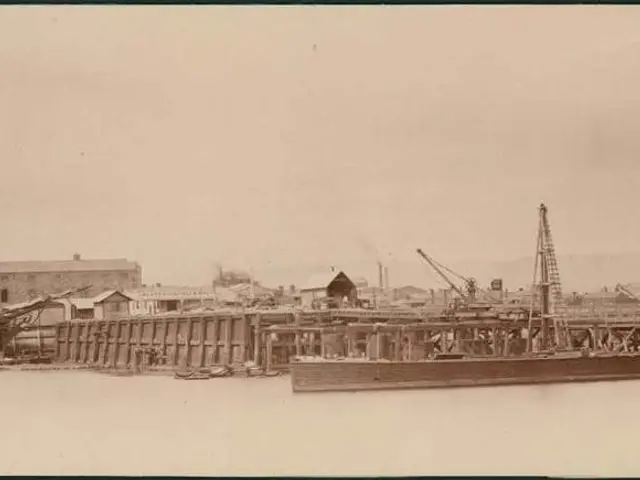A Denmark Departure from Its Nuclear Energy Ban: A Closer Look
Denmark contemplates lifting long-standing prohibition on nuclear energy
Denmark is re-evaluating its stance on nuclear energy, a prohibition in place since 1985. The Scandinavian country, renowned for its wind energy dominance, contemplates this shift to avoid future power outages like the recent one in Spain and Portugal.
Lars Aagaard, Denmark's climate, energy, and utilities minister, revealed the centrist coalition in Copenhagen would spend a year examining the merits of resurrecting nuclear power.
Embracing nuclear energy would position Denmark amongst a burgeoning group of nations eyeing nuclear energy as a means to even out renewable energy sources in their electricity mix. Sweden, Denmark's neighbor, is now advocating for nuclear power, with three operational plants despite large debates following the 1979 Three Mile Island accident.
Denmark boasts one of Europe's highest shares of renewable energy due to extensive offshore wind farms. The country also relies on coal, gas, and energy ties to countries like Sweden and Norway - who boast nuclear and hydroelectric resources – to maintain a minimal risk of European power interruptions.
Four right-wing opposition parties in Danish parliament are pushing for reintroducing nuclear power, holding a debate with Aagaard on Wednesday.
Aagaard mentioned the development of new nuclear technologies like SMRs, which are built in factories and offer shorter construction times compared to large plants. This technology has piqued investor interest globally, but most projects are still in the design phase or awaiting regulatory approval.
Former Danish Prime Minister Anders Fogh Rasmussen, also a former NATO Secretary-General, expressed support for lifting the alleged "nonsensical" ban. Rasmussen noted that wind and solar are useful resources, but it is necessary to have a non-fossil base load, and antagonizing nuclear power beforehand is irrational.
Last month, a fund backed by Danish billionaire Joachim Ante unveiled plans to raise €350mn ($397mn) to support the advanced nuclear industry and its supply chain. The fund identifies a nuclear power renaissance stemming from growing energy security concerns. Ante, the founder of video game software company Unity, has already invested €50mn.
A potential controversy arises over where new nuclear power plants would be situated and waste storage locations. Denmark housed a research reactor just outside Copenhagen until 2001, where the waste is currently stored. In 2018, the parliament decided to establish a secure disposal facility by 2073.
Large nuclear reactors fell out of favor after incidents like Chernobyl in 1986 and Fukushima in 2011. Recent large nuclear projects in countries like France, the UK, and Finland have escalated costs, with Finland’s Olkiluoto 3 plant opening 14 years late and almost quadrupling the initial budget.
[1] Small Modular Reactors (Source: Investopedia)[2] History of Nuclear Power in Denmark (Source: World Nuclear Association)[3] Public Attitudes and Perceptions Towards Nuclear Power (Source: Euratom Supply Agency)[4] Denmark's Energy Policy (Source: Danish Energy Agency)[5] Denmark's Energy Mix (Source: Eurostat)
- The debate on nuclear energy in Denmark involves analyzing the potential benefits of Small Modular Reactors (SMRs) as they offer shorter construction times and have attracted global investor interest.
- Embracing nuclear technology, as Denmark is contemplating, could position the country within the finance sector, where a nuclear power renaissance is being predicted due to growing energy security concerns, as illustrated by a recent fund backed by Danish billionaire Joachim Ante.







